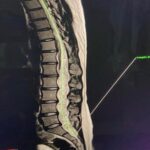The brain also needs exercise like the body to keep this disease at bay
New Delhi, March 3, 2019: Deep sleep is crucial to cleaning the brain, revealed new study. Because sleep often becomes increasingly lighter and more disrupted as we become older, the study reinforces and potentially explains the links between aging, sleep deprivation, and heightened risk for Alzheimer’s disease. Slow and steady brain and cardiopulmonary activity associated with deep non-REM sleep are optimal for the function of the glymphatic system, the brain’s unique process of removing waste.
Older people who get less deep sleep have higher levels of the brain protein tau, a sign of cognitive decline and Alzheimer’s disease, according to another study. Up to two decades before the characteristic symptoms of memory loss and confusion appear, amyloid beta protein begins to collect into plaques in the brain. Tangles of tau appear later, followed by atrophy of key brain areas. Only then do people start showing unmistakable signs of cognitive decline.
Speaking about this, Padma Shri Awardee, Dr KK Aggarwal, President, HCFI, said, “Early-onset AD is unusual, and is familial in some but not all cases. The latter makes up less than 1% of cases (several hundred families around the world) and often follows an autosomal dominant pattern of inheritance. Memory impairment is the most frequent feature of AD and is usually its first manifestation. Deficits in other cognitive domains may appear with or after the development of memory impairment. Executive dysfunction and impaired visuospatial skills tend to be affected relatively early, while deficits in language function and behavioral symptoms often manifest later in the disease course.”
AD is inexorably progressive, but the rate of progression can vary. The average life expectancy has been reported to be between three and eight years. The diagnosis of AD is made by clinical assessment.
Adding further, Dr Aggarwal, who is also the Group Editor-in-Chief of IJCP, said, “Behavioral disturbances can profoundly affect patients with dementia as well as their families and caregivers. Cognitive rehabilitation can help patients in the early stages of dementia to maintain memory and higher cognitive function. It is imperative to diagnose the condition at the earliest and chart a proper care plan for such patients.”
Some tips from HCFI to lower the risk of Alzheimer’s
- Maintain a healthy weight.
- Check your waistline.
- Eat mindfully. Place emphasis on colorful, vitamin–packed vegetables and fruits; whole grains; fish, lean poultry, tofu, and beans and other legumes as protein sources plus healthy fats. Cut down on unnecessary calories from sweets, sodas, refined grains like white bread or white rice, unhealthy fats, fried and fast foods, and mindless snacking. Keep a close eye on portion sizes too.
- Exercise regularly. Aim for 2½ to 5 hours weekly of brisk walking (at 4 mph). Or try a vigorous exercise like jogging (at 6 mph) for half that time.
- Keep an eye on important health numbers. In addition to watching your weight and waistline, keep a watch on your cholesterol, triglycerides, blood pressure, and blood sugar numbers.







